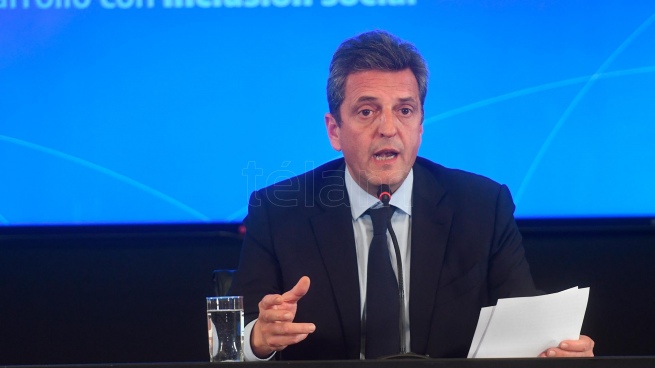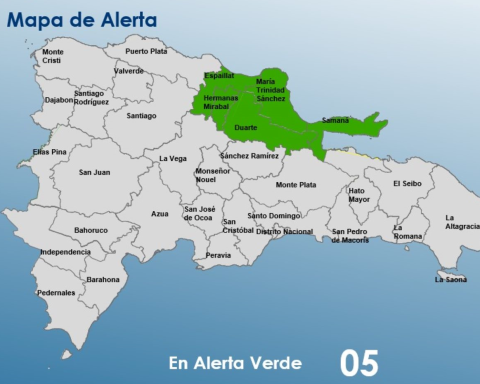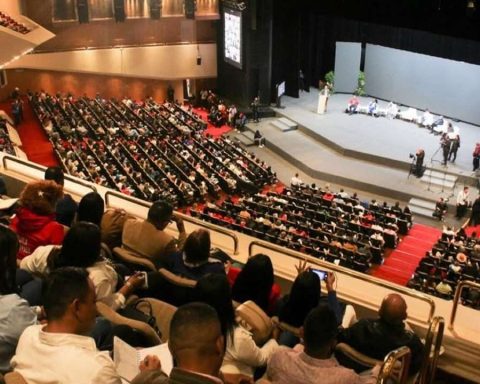The Ministry of Economy will carry out on Tuesday an operation to exchange titles that expire between this month and October for others that are paid next year, and that the holder, at the time of payment, chooses if he wants it to be adjusted for the variation of the dollar. or prices.
In this way, the portfolio led by Sergio Massa will specify one of the points that he announced a few hours after taking office, a measure that seeks to decompress the debt commitments in pesos for the next 90 daysthrough a voluntary debt swap, together with the decision not to request transitory advances from the Central Bank (BCRA) until the end of the year as a mechanism for financing the public deficit.
The details of the exchange proposal that was completed at the Palacio de Hacienda were announced while the definition of who will be the deputy minister was pendinga position that is still under study and for which an economist specialized in macroeconomics with experience in relations with multilateral banks is sought.
In the early hours of the day, the idea of incorporating consultant Gabriel Rubinstein into that role was advanced.executive director of the consulting firm GRA, who worked at the Central Bank during Roberto Lavagna’s term as minister (2002-2005), sources from the Palacio de Hacienda pointed out.
Nevertheless, As the hours passed, priority was given to moving forward in the search for another profile and the resolution of who will be the new deputy minister was still under analysis tonight, the sources added.
While waiting to complete the team, the Ministry of Economy informed that one of the offers is to take one of these “Dual Bonds” with maturity in June 2023 and deliver Treasury bills adjusted by CER (inflation) in exchange, or another to variable rate plus 14%, both payable on August 16, or a third at Discount but due on the 31st of this month.

The second option is another Dual Bond maturing in July 2023 and the securities to be delivered are a CER-Adjusted Bond, plus 1.3% maturing on September 20, and a Treasury Bill at a discount, payable on September 30. September.
The third option is also a Dual Bond but with expiration on September 30 of next year and for it the Treasury Bills can be exchanged, with CER and at a discount that must be paid on October 21, and the Treasury Bills at a discount with close on October 31.
The reception of the offers will begin at 10:00 and will end at 15:00 next Tuesday and the settlement of the offers received and awarded will take place on Friday, August 12, the Ministry of Economy reported in a statement.
Massa had also anticipated that next Monday the Ministry of Economy will reimburse $10,000 million to the BCRA as a way of reducing the debt it has with the monetary authority, a “cancellation path that we will try to continue.”and highlighted a strong adherence to the swap estimated at 60% in the first dialogues with debt holders in the private sector.
“Basically, what we are going to do is not ask for more money from the Central Bank to finance the treasury. We are going to manage with the resources we collect and with the financing we can get from the private sector,” he assured.
Both measures, said the minister, intend to “provide greater predictability and clear up uncertainty” and other speculations of recent days, in which there was talk “of a large concentration of debt maturities in the coming months.”
With regard to the commitment to limit the monetization of the deficit, so far this year the Central Bank has transferred some $950,000 million to the National Treasury as Temporary Advances, although the Treasury has returned $322,449 million with part of the Rights Special draft (SDR) granted by the IMF.
The agreement signed with the IMF established a maximum of Temporary Advances from the BCRA to the Treasury equivalent to 1% of GDP for 2022, a goal that has been met until now but that, with the measure announced this Friday, will be exceeded.


















